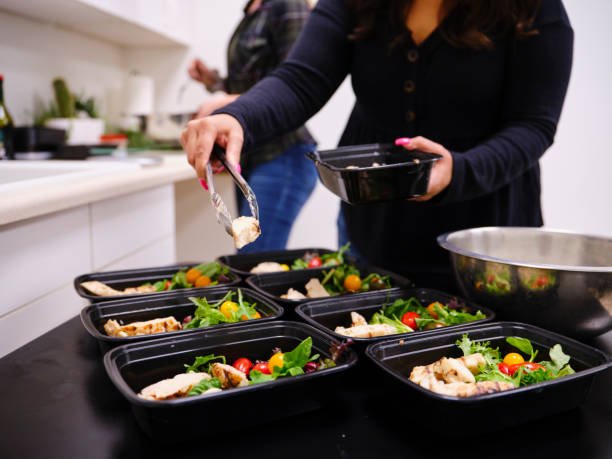13 Best Types of Food to Eat in IBS for Less Bloating & Better Digestion (2025 Guide)
Table of Contents
ToggleSearching for the best food to eat in IBS? Discover 13 gut-friendly Indian and global foods that reduce bloating, support digestion, and calm flare-ups. If you’re tired of feeling bloated, gassy, or painfully full after even the simplest meal—you’re not alone.
IBS (Irritable Bowel Syndrome) is unpredictable and often misunderstood. One day rice works, the next day it doesn’t. That’s why identifying the right food to eat in IBS is the key to calming your gut.
In this guide, we’ll break down 13 safe, soothing, and science-backed foods to eat in IBS — plus how to cook and combine them for long-term digestive relief.
What Is IBS & Why Food Triggers Matter
IBS is a functional gut disorder—meaning your intestines aren’t damaged, but they behave abnormally. It leads to symptoms like:
Bloating and gas
Constipation or diarrhea (or both)
Abdominal cramps
Feeling like you haven’t fully emptied
The best food
FODMAP Chart – Food to Eat in IBS (Low FODMAP Indian List)
The FODMAP diet (Fermentable Oligosaccharides, Disaccharides, Monosaccharides, and Polyols) is a scientifically validated method to reduce IBS symptoms.
Low FODMAP Indian Foods (Safe for IBS)
These are foods you can eat if you have IBS:
| Category | IBS-Safe Foods |
|---|---|
| Grains | Ragi (nachni), oats, rice flakes (poha), small portions of white rice |
| Veggies | Bottle gourd, ridge gourd, spinach, carrots, pumpkin, cucumber, zucchini |
| Fruits | Ripe banana (½), papaya, kiwi, oranges (in moderation) |
| Proteins | Eggs, boiled chicken, fish, moong dal, masoor dal (small quantity), tofu |
| Spices | Hing (asafoetida), cumin, coriander, turmeric, fennel |
| Fats | Ghee, coconut oil (small amount), flaxseeds (ground) |
| Drinks | Cumin-fennel tea, ginger water, ajwain-jeera tea |
High FODMAP Foods to Avoid (IBS Triggers)
Avoid or strictly limit:
Onions, garlic, cabbage, cauliflower
Wheat, maida, bakery items
Lentils like urad dal, chana dal (unless sprouted & in tiny amounts)
Apples, watermelon, mango
Dairy (unless lactose-free or fermented curd)
Beans, rajma, chole
Sugar-free chewing gums, sodas, processed sauces
13 Best Types of Food to Eat in IBS (Indian + Global)
1. Moong Dal (Split Yellow Lentils)
Low-FODMAP, easy to digest, and packed with protein. Ideal for constipation-prone IBS.
Cook it light: Avoid onion, garlic, and too much ghee
Try: Moong dal khichdi with jeera and hing
2. Cooked White Rice
Yes, white rice is IBS-friendly when eaten with gut-calming spices.
Pair with: Bottle gourd curry, jeera tadka, or curd (only in lunch)
Avoid: Fried rice, biryani, and store-bought pulao
3. Ripe Bananas (Small-sized)
These are low in fermentable fibers and high in potassium—great for IBS-D and post-flare nutrition.
Eat in morning or as a snack, not at night
4. Cucumber (Peeled + De-seeded)
Cooling, hydrating, and helps reduce acidity-related flare-ups.
Add to salads with pink salt + mint, or blend into chaas
5. Homemade Curd (Lunch Only)
Full of probiotics, but only if you tolerate dairy well.
Rules:
Eat at room temperature
Avoid if you have lactose sensitivity
Never eat at night
6. Ajwain Water or Tea
Carom seeds are a lifesaver for bloating and gas.
Make it: Boil 1/2 tsp ajwain + 1/4 tsp jeera + pinch of rock salt
Drink after meals
7. Oats (Rolled or Steel-Cut)
Great source of soluble fiber, helps bulk stools in both IBS-C and IBS-D
Tip: Cook with water or almond milk. Avoid raw oats or instant packets.
8. Steamed Lauki (Bottle Gourd)
One of the safest foods to eat in IBS—light, alkaline, and anti-inflammatory.
Season with: Hing, turmeric, and jeera. Avoid chili or tomatoes.
9. Roti Made from Rice or Moong Flour
Wheat can be a hidden IBS trigger. Switch to gluten-free rotis.
Try moong roti, rice flour roti, or ragi roti with sabzi
10. Coconut Water (Fresh Only)
High in electrolytes, it’s ideal during IBS-D or heat-triggered flares.
Avoid bottled ones with preservatives or sweeteners
11. Pumpkin (Boiled or Stir-Fried)
Eases constipation and calms the gut lining.
Try lauki-pumpkin mix sabzi with ghee and hing
12. Chia Seeds (Soaked Overnight)
Regulates bowel movements and hydrates the colon.
Use in: Smoothies, porridge, or as mid-morning pudding
13. Herbal Teas: Fennel, Mint, or Chamomile
Natural muscle relaxants that calm spasms, reduce bloating, and ease anxiety-related gut issues.
Sip warm—not hot or iced
IBS Food Prep Tips to Save Time
Soak dals, chia, and methi overnight
Pressure-cook in bulk and store in glass
Avoid leftovers beyond 1 day
Label meals as IBS-L (lunch-safe) or IBS-D (for diarrhea phase)
Best Cooking Methods for IBS
| Method | Why It Helps |
|---|---|
| Steaming | Retains nutrients, easy to digest |
| Boiling | Breaks down fibers |
| Dry roasting | For jeera, ajwain, fennel before use |
| Pressure-cooking | Makes legumes gut-friendly |
Common IBS Food Mistakes
| Mistake | Better Alternative |
|---|---|
| Eating curd at night | Only have it at lunch with rice |
| Raw salads during flares | Steam veggies instead |
| Garlic and onion tadkas | Use hing, ginger, and jeera instead |
| Instant oats + milk | Use rolled oats + almond milk |
| Store-bought masala mixes | Use homemade dry spice blends |
IBS Food to Eat During Flare-Ups (Gentle Reset Meals)
If you’re bloated or in pain, stick to:
Moong dal soup
Steamed lauki or pumpkin
Thin rice porridge with cumin (no curd)
Ginger-fennel tea every few hours
1 tsp soaked chia seeds in lukewarm water
These soothe inflammation without overloading your gut.
Final Thoughts about -Food to Eat in IBS
Managing IBS isn’t about adhering to a one-size-fits-all diet; it’s about understanding your body’s unique responses and making informed choices. While general guidelines like the low-FODMAP diet can provide a starting point, individual tolerances vary, and what works for one person may not work for another.
Incorporating gut-friendly foods such as well-cooked vegetables, lean proteins, and fermented products can aid in symptom management. Equally important is the manner in which you eat: consuming meals slowly and in a relaxed environment can enhance digestion and reduce discomfort .
Remember, it’s not just about eliminating trigger foods but also about fostering a positive relationship with food and your body. Consulting with healthcare professionals can further tailor dietary strategies to your specific needs, ensuring a balanced and enjoyable approach to eating.
This blog was created on WhiteBalanceAI.com — a content platform I now use to help others build healing, high-traffic websites like this one.
You May also Like-Tea Burn for Weight Loss: My Honest Review After 21 Days
Frequently Asked Questions
Which foods are safe to eat for IBS?
Choose low-FODMAP options like bananas, blueberries, carrots, spinach, oats, rice, eggs, and lean proteins such as chicken, fish, and tofu.
Can I include dairy if I have IBS?
Stick to lactose-free dairy or alternatives like almond, oat, or coconut milk; regular dairy may trigger symptoms in sensitive individuals.
Are nuts and seeds okay for IBS?
Small portions of almonds, macadamia nuts, chia, and flax seeds are usually well-tolerated. Avoid large servings or high-FODMAP nuts like cashews and pistachios.


One Comment